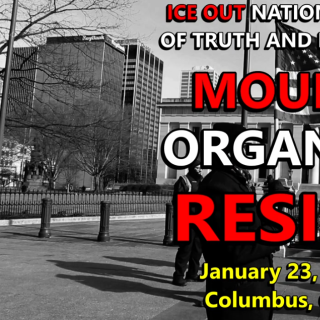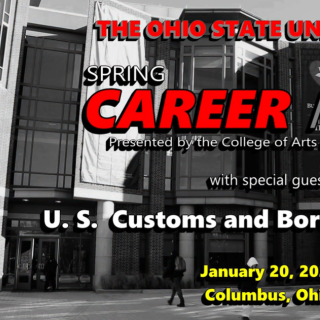With Thanksgiving just over a week away – and initial preparations for the holiday feast already underway in homes across the country – it has perhaps never felt more important to pause, take a breath, and reflect on the meaning of the season.
Thanksgiving is a time for stepping away from the rush and bustle of every day life and work, to put down our phones and close our laptops, and to focus on the things in life for which we are truly grateful — on friends and family, on love and the ties that bind us to each other in what Dr. King, in his “Letter from a Birmingham Jail”, famously described as, “an inescapable network of mutuality… a single garment of destiny.”
Dr. King wrote that letter in 1963 at a difficult time in the Civil Rights movement, in the middle of the tumultuous Birmingham campaign. That campaign pitted Birmingham’s famous standard bearer for the forces of white supremacy, Sheriff Bull Connor, against a non-violent army of those who believed in freedom, from the common folks of the city to students from around the country. The clashes in Birmingham produced some of the most enduring images of the Civil Rights Movement, as Connor and his police loosed their dogs and firehoses on peaceful protesters, on young men and women who, despite the obvious danger, returned to the streets again and again to demand dignity and respect for their fundamental human rights:

1963 would prove to be a pivotal year in the history of the Civil Rights Movement, thanks in large part to the courageousness of those protesters who exposed themselves to great physical harm in non-violent protest with the goal of drawing out the essential nature of white supremacy and laying the violence and hatred at its core bare for all to see. And though the forces of love were ultimately to prevail, there surely were many difficult days in the course of that campaign when the light at the end of the tunnel must have seemed to disappear entirely, leaving only darkness. Days like that day in April, 1963, when Dr. King found himself in a Birmingham jail, behind bars once again for his commitment to equal rights and equal justice, reflecting on the uncertain future ahead.
Sixty years later, 2024 promises to be another pivotal moment in our country’s history.
Though much has clearly changed since the days of Jim Crow, there is no denying that once again a darkness has descended on our land, filled with echoes of the past. Indeed, as we look to the future from here in Immokalee, we face the months and years ahead with a sense of trepidation, our hearts weighed down by the return of old divisions. For far too many of our communities, our neighbors, and our families, that future feels heavy with isolation and, in equal measure, fear.
We will not, however, allow others to write the story of our future. Our history here in Immokalee holds its own lessons of consciousness, commitment, and change.
There are few places in this country that have done more over the past 30 years to conquer fear and break through isolation than this small farmworker town. When workers gathered two weeks ago in Immokalee for the CIW’s longstanding Wednesday night meeting to reflect on the moment in our country today, the message from the community was crystal clear:
“We must remain united and strong.”
“We will keep up the fight.”
“We have to protect and support our families.”
“We cannot stay silent.”
“We will never stop defending our human rights.”
This Thanksgiving, join us as we give thanks for the hard labor — and unwavering commitment to justice — of the men and women who harvest our food here in Immokalee and in small towns across this country. Share their message of resilience with your family and friends. Commit yourself to taking action – however big or small – in the years ahead in alliance with their unrelenting call for justice. And, remember that Immokalee’s fierce tenacity – its profound commitment to that “single garment of destiny” that Dr. King saw so clearly in his mind’s eye as he looked to the country’s future from the darkness of his cell sixty years ago – includes you, as a member of the Fair Food family.
Because, as reflected in the timeless Thanksgiving video above, the power of the Fair Food movement has long depended on the network of relationships at its heart: the relationships between farmworker families in Immokalee and consumer families from coast to coast, between families fundamentally connected by the story of the food we all eat. And we have found, time and time again, that when we work in concert, when we build common cause between farmworkers and consumers, we can create extraordinary change in our food system.
Together, we have marched and fasted and made our voices heard, demanding Fair Food. We have braved cold, rain, wind, and heat, often with our families in tow, all in the name of a more modern, more human agricultural industry. Indeed, the Fair Food Program is now a beacon for equal rights on justice not only for the farmworkers who remain outside of the Fair Food Program, but for low-wage workers from across the country and the world.
And we cannot, we will not, stop fighting now. With Thanksgiving week all but upon us, let’s give thanks for the ties that bind us, and the struggle that will carry us through today’s darkness, division, and chaos into the light that surely awaits us tomorrow.



